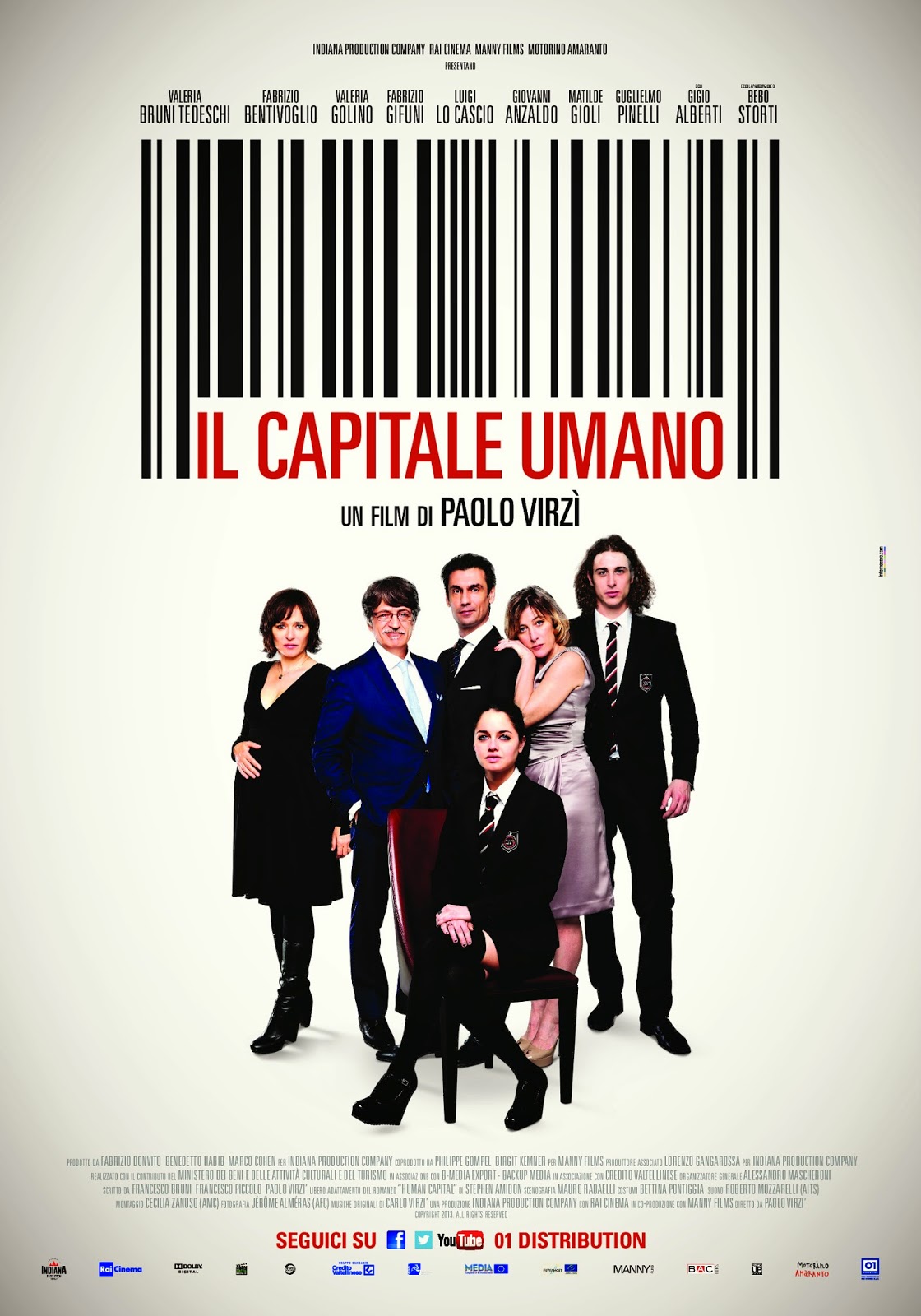 On a snowy wintry night in a small town in the suburbs of Milan, after he has worked at an Awards Evening for the local school, a waiter jumps on his bike to make his way home. However before he can get there, he is run over by a hit-and-run driver who leaves him at the side of the road to die. This tragedy affects many more people than the ones involved in the accident, and this complicated multi-layered drama is the tale of a number of people from all walks of life who end up embroiled.
On a snowy wintry night in a small town in the suburbs of Milan, after he has worked at an Awards Evening for the local school, a waiter jumps on his bike to make his way home. However before he can get there, he is run over by a hit-and-run driver who leaves him at the side of the road to die. This tragedy affects many more people than the ones involved in the accident, and this complicated multi-layered drama is the tale of a number of people from all walks of life who end up embroiled.
Director/screenwriter Paolo Virzì tells this story in three chapters through different sets of eyes, and each re-telling of the same events has its own particular focus.
The first one is 'Dino' and it starts 6 months earlier when Dino is dropping off his teenage daughter Serana at her boyfriend's family fancy villa. Massimiliano and she go to the same school together even though they come from totally opposite ends of the social scale.
Massimiliano's father Giovanni runs a major international hedge-fund, and Dino a small-time real estate broker is desperate to be allowed to invest in the fund. As it happens that particular day Giovanni is short of a tennis partner and so the anxious-to-please Dino wangles his way on the court and into the Fund. He mortgages his business and house to find the necessary minimum ¢500,000 investment without telling his new second wife who is expecting a child. You know its not going to end up well for him even then.
The second chapter is named 'Carla' after Giovanni's insecure socialite wife who is bored to tears as she is always left to her own devices by her neglectful wheeler-dealer husband. An ex-amateur actress, Carla persuades an indulgent Giovanni to save the local dilapidated theater for the sake of the town's culture, but he does it to make a quick buck on the property. She at least gets to have a one night stand with the theater director as a way of compensation.
The final chapter is the one on 'Serena' who has been keeping dumb to the Police on who actually drove Massimilani's car the night it hit the driver. This is where all the loose ends of the story get tied together and as the Fund fails both Dino and Giovanni's wives act like they are both completely in shock at discovering their husband's greed. Dino had believed the myth that easy money was just that, and it would bring him happiness too, whilst Giovanni used it as a tool simply to buy anything and anybody he wanted, including his son's freedom.
This very Italian tale was surprisingly adapted from an American best-selling novel in which the action had been set in Connecticut. Avarice is avarice wherever it is. Although the emphasis was on the menfolk, in this movie, it was the three women's performances that were the attention grabbers: newbie Serena Ossola in her first screen role as Serena, Valeria Golino in the small but vital part of Roberta, Dino's wife, and the stunning Valeria Bruni Tedeschi who picked up the Best Actress Award at Tribeca Film Festival for her excellent portrayal of the neurotic Carla.
The morals may be loose but the pace is fast and consuming in this look at capitalism in crisis. It's a sorry tale, but one that is told very well.
★★★★★★★★







.jpeg)
.jpeg)





.jpg)


.jpeg)








.jpeg)


.jpeg)



.jpeg)